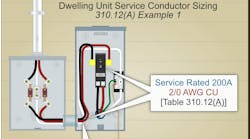You recently took a supervisory job at another firm. There’s a lot that you like about this job, but you’re seeing less than full commitment to safety among your crew and other crews. In fact, their whole attitude seems to be about just barely not breaking the rules rather than about how to ensure everyone is safe.
The whole company seems to be this way. You don’t hear the same kinds of discussions you did at your previous job, and the job briefings seem to be minimal at best.
You hadn’t picked up on this attitude during the interviews. Your boss had, in fact, mentioned the company’s good safety record and you saw safety posters everywhere you went.
As “the new guy” will you be listened to if you say something? That depends on what you say and how you say it. Some tips:
- Avoid coming across as critical, especially since you’re “the new guy.”
- Ask questions in the context of job briefings or work performance, as if you are seeking advice. For example, “Can you see how we can make this task safer?” or “How do we identify the potential dangers here?”
- Talk with other supervisors, one at a time. Bring up something specific in NFPA 70E, and ask a question about implementation. For example, “I’m not sure what the procedure at this company is for lockout/tagout. I was looking at Informative Annex G of NFPA 70E to see if we’re safe enough there. Can you help me figure this out?”
- When you see an unsafe act, don’t react in a rules enforcement mode since the mentality of just barely not breaking the rules is in play. Ask the person to stop for a moment, and then ask in what what they might be doing the task unsafely. Then ask how they might do it more safely. This way, you make your point and you have the person identifying and solving the problem rather than “getting caught” almost breaking a rule.
Do you see the common theme in these tips? You don’t challenge others or “make them wrong”, as that just leads to defensiveness. Instead, you ask for their input and stimulate them to think about safety. Every time you ask someone for help with a safety standard (e.g., NFPA 70E) or a company safety policy or procedure, you get them thinking about those things front of mind.
This kind of gentle, but persistent, nudging will hugely help move the safety attitude from poor to great with minimal, if any, resistance.




